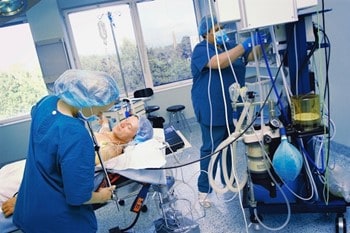The Critical Role of Anesthesiologists in Multi-Specialty Surgical Teams
In modern healthcare, surgeries have grown increasingly complex, requiring multiple specialties to collaborate for the best patient outcomes. Anesthesiologists, often trained through highly competitive open anesthesiology residency positions, play a critical role far beyond simply administering anesthesia. Their expertise is essential for ensuring patient safety, managing pain, and responding swiftly to medical emergencies during surgical procedures. The seamless collaboration between anesthesiologists, surgeons, and other healthcare professionals is the foundation of success, particularly in intricate and multi-disciplinary environments.
Pre-Operative Care
The role of an anesthesiologist starts long before the patient enters the operating room. Pre-operative evaluations are one of the most crucial aspects of their work, as these healthcare professionals assess the patient’s medical history, current medications, and overall health status. This allows them to identify any risk factors that could complicate surgery, such as cardiovascular issues, respiratory conditions, or potential drug interactions.
Working closely with the surgical team, anesthesiologists develop a plan tailored to the patient’s specific needs. This collaborative process helps ensure that the patient is in optimal condition for surgery and minimizes potential complications. The anesthesiologist’s pre-operative role often includes educating patients about the anesthesia process, alleviating concerns, and explaining what they can expect before, during, and after the procedure.
Intra-Operative Monitoring
Once in the operating room, the anesthesiologist’s responsibility intensifies. They are in charge of managing the patient’s vital functions, such as heart rate, blood pressure, oxygen levels, and temperature, ensuring that the body responds appropriately. Advanced monitoring techniques allow anesthesiologists to continuously assess the patient’s condition in real-time, adjusting the anesthesia or administering medications as needed.
In multi-specialty surgical teams, anesthesiologists must coordinate closely with surgeons, nurses, and other specialists. For example, during complex surgeries that require precision and extended time under anesthesia—such as cardiac surgery, neurosurgery, or organ transplants—the anesthesiologist ensures that the patient remains stable. They adjust the depth of anesthesia to match the surgical phase while managing the patient’s pain and physiological responses.
In some cases, such as trauma surgeries or high-risk procedures, anesthesiologists must act quickly to address unforeseen complications. Their ability to react to sudden changes—whether it’s a drop in blood pressure or an allergic reaction to a medication—makes them indispensable in the operating room. Without this vigilance, patient safety would be severely compromised.
Post-Operative Care
After surgery, the anesthesiologist’s role transitions to post-operative care, particularly in managing pain and overseeing the patient’s safe emergence from anesthesia. Pain management is a critical aspect of recovery, as uncontrolled pain can slow healing, increase stress, and lead to complications such as hypertension or infection. Anesthesiologists are experts in both pharmacological and non-pharmacological pain relief methods, ensuring that each patient has an individualized pain management plan that facilitates quicker recovery.
In cases involving multi-disciplinary teams, the anesthesiologist continues to collaborate with other healthcare professionals to ensure that pain management aligns with the overall treatment plan. For instance, patients recovering from major surgery may require post-operative monitoring in the intensive care unit (ICU), where the anesthesiologist works alongside critical care doctors, nurses, and physical therapists to oversee recovery.
In addition to pain management, anesthesiologists are instrumental in reducing the risk of post-operative complications such as nausea, vomiting, and respiratory issues. They also monitor the patient’s vital signs and overall condition during the critical hours following surgery, ensuring that any signs of distress or complication are addressed immediately.
Collaboration in Multi-Specialty Surgical Teams
Anesthesiologists do not work in isolation; their success relies on seamless collaboration with the entire surgical team. Whether coordinating with a cardiac surgeon during open-heart surgery or working alongside an orthopedic surgeon in joint replacement procedures, anesthesiologists serve as an essential communication bridge. Their real-time updates on the patient’s status allow surgeons and other specialists to focus on their tasks with the confidence that the patient’s overall health is being carefully monitored.
In multi-specialty surgeries that may involve more than one surgeon—such as in the case of tumor resections that require both a general surgeon and a plastic surgeon for reconstruction—anesthesiologists must ensure that the patient remains stable for the duration of the procedure, which can be longer and more complex than single-specialty surgeries. Their involvement ensures smooth transitions between different phases of surgery, from preparation to recovery.
Moreover, they frequently collaborate with other non-surgical specialists, such as radiologists or interventional cardiologists, during hybrid procedures that require both surgical and non-surgical interventions. This teamwork is vital in ensuring that the patient’s anesthesia and overall care are adapted to the nuances of each specialty.
Conclusion
Anesthesiologists are far more than just the “sleep doctors” often imagined by the general public. Their expertise is integral to every phase of surgery—from pre-operative planning and intra-operative monitoring to post-operative care and recovery. In complex, multi-specialty surgical teams, anesthesiologists are the key to ensuring patient safety, comfort, and the successful outcome of procedures.
As surgeries become more advanced and involve various specialties, the role of the anesthesiologist becomes even more critical. Their collaboration with surgeons, nurses, and other healthcare professionals enables complex procedures to be performed with precision and care. By maintaining a vigilant focus on patient health throughout the surgical process, anesthesiologists help make cutting-edge surgeries possible while minimizing risks and improving recovery outcomes. In essence, they are the unsung heroes of the operating room, whose skills and expertise enable the future of surgical care.


